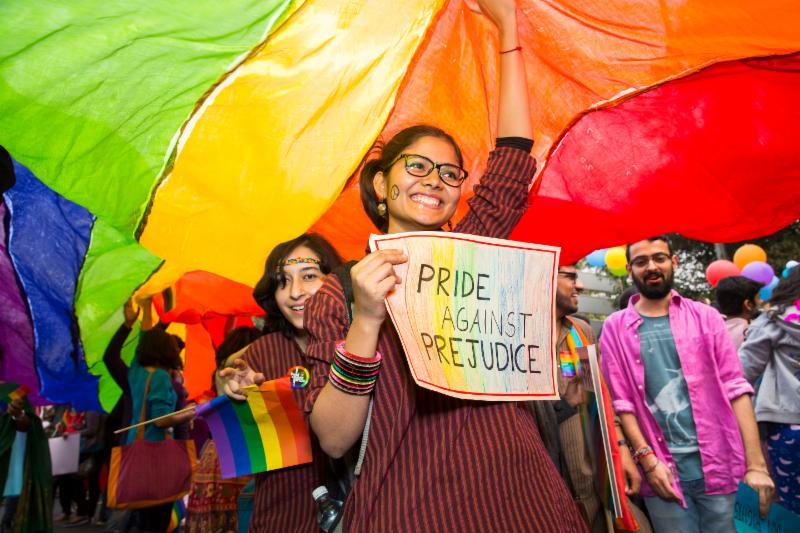India legalises homosexuality in landmark move by Supreme Court
The five-judge bench unanimously agreed to overturn the ban on homosexuality
By Steve Brown

India has legalised homosexuality in a landmark move.
Back in 2013, homosexuality was reinstated as a criminal offence after four years of decriminalisation and was punishable by up to 10 years in jail.
However, a five-judge bench in the country’s Supreme Court were unanimous in their decision to overturn the ban.
Chief of Justice of India, Dipak Misra, said: “Any consensual sexual relationship between two consenting adults – homosexuals, heterosexuals or lesbians – cannot be said to be unconstitutional.”
LGBT activists around the world welcomed the decision including Meenakshi Ganguly, the director for Human Rights Watch in South Asia who wrote on Twitter: “Thanks to all that fought for this, braving the worst sort of prejudice.
“This is a good day for human rights.”
Activist Peter Tatchell also commented on the history-making ruling.
He said: “This historic legal ruling sets free from criminalisation almost one fifth of the world’s LGBT+ people.
“It is the biggest, most impactful gay law reform in human history. I hope it will inspire and empower similar legal challenges in many of the 70 countries that still outlaw same-sex relations, 35 of which are member states of the Commonwealth.
“Ending the ban on homosexuality is just a start. There are still huge challenges to end the stigma, discrimination and hate crime that LGBTs suffer in India.
“Indian LGBTs now revert to the legal status of non-criminalisation that existed prior to the British colonisers imposing the homophobic section 377 of the criminal code in the nineteenth century.”
